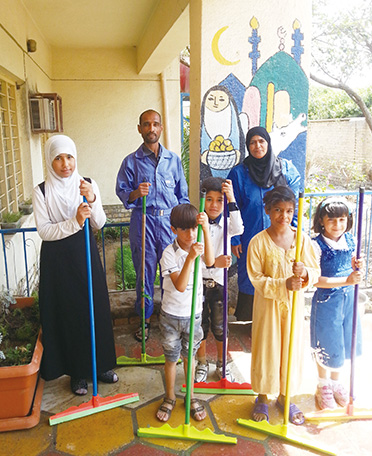Japan's Official Development Assistance White Paper 2013
(2) Iraq
Since 1980, economic and social infrastructure in Iraq have been significantly damaged due to frequent wars and the economic sanctions from the international community, and because of this the country is suffering frequent power outages and water service disruptions. It is extremely important that Iraq be rebuilt as a peaceful, democratic nation, while maintaining its coherence of sovereignty and territory, not only for the people of Iraq and the Middle East in general, but for the peace and stability of Japan and the international community as well. In light of this concept, the international community has been supporting the reconstruction of Iraq. In recent years the focus on the assistance to Iraq is moving from emergency response to medium- to long-term reconstruction development.
<Japan’s Efforts>
Prior to the International Donors’ Conference on Reconstruction of Iraq held in Madrid in October 2003, Japan pledged to provide $1.5 billion in grant aid for immediate assistance, and at the conference it pledged to provide additional ODA loans of up to $3.5 billion to support medium-term reconstruction demand. Japan has provided approximately $1.67 billion in grant aid, exceeding the pledged amount, and it signed Exchanges of Notes (E/N) (Note 14) for 19 projects worth a total of $4.1 billion in ODA loans, achieving the international commitment of $5 billion made in 2003. In addition to the above, Japan has provided technical cooperation to conduct trainings for over 5,000 people in Iraq, as well as completed the debt relief measure to reduce a total of $6.7 billion of Iraq’s public debt to Japan in 2008.
Japan will provide support for Iraq to help its smooth transition from the “post-war reconstruction” stage to the “self-supported development” stage, focusing on “the promotion and diversification of industries to encourage economic growth,” “the enhancement of basic economic infrastructure,” and “the development of infrastructure for living.”

Community Participatory School Rehabilitation and Management in Basra, Iraq. Teachers and children promote cleaning campaigns to keep the school clean
(Photo: Save the Children Japan) (See “Stories from the field”)
Note 14: Exchange of Notes (E/N) is an agreement exchanged between countries
